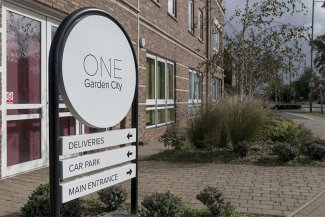The Darkest Hour is...not bad. And no: that is not damning with faint praise. Rather, it is recognition that over the last year or so, film-makers have hit upon a new and hitherto unexploited segment of the movie-going market. I'm tempted to name it the wistful nostalgic, in the sense that it seems to be composed primarily of people possessed of a romantic view of Britain's (imperial) past.
So, in addition to Darkest Hour, a drama doc retelling of those crucial first days of Winston Churchill's premiership in 1940, we have lately had Dad's Army, Their Finest, Dunkirk and in a week or so, perhaps bucking the trend, the much more visceral Journey's End, focussing on the last days of WWI. Also on the big screen, not war movies, but still expressing that same longing for a once-upon-a-time golden age, Viceroy's House and Victoria and Abdul.
And on TV, films about “our boys” overseas dramatising the slow British retreat from Aden and Afghanistan. One cannot help but spot a pattern of sorts – and good luck to them!
And while I can appreciate these as well-made and very definitely appealing to a particular audience, that audience is not me. The reason for that is possibly not unrelated to the reason why these films ARE so popular, and that is they represent one half of a narrative – an active debate, no less – about Britain's past, made very present by the EU referendum and the last 18 months or so of debate about our future outside the EU.
Do the sunny uplands beckon, as Britain returns to its status as exceptional outsider? Or does the exceptionalist narrative cover up some real and damaging truths about the basis for past success?
I'm certainly not going to abuse the hospitality of the Heritage Foundation by arguing one side or other of this debate here: but I will note that this latest trend comes down pretty firmly on one side of that divide (just as one would have expected any war film starring Jane Fonda circa 1970 to have come down on the anti-establishment side).
Darkest Hour is a broadly accurate depiction of the events between the resignation of Chamberlain, and anointing of Churchill as Prime Minister in early May 1940, and the evacuation of Dunkirk approximately 3 weeks later. In the course of those few short days, Britain managed, miraculously, to save much of its army from destruction. This, in itself, was no guarantee of victory. But it made survival a possibility and began the long slow march back to mainland Europe four years later.
The military narrative is mostly off-screen – though there is a brief and poignant salute to the heroism of the Calais garrison, sacrificed to buy time. The focus, though, is on the personal and political conflict between Churchill (Gary Oldman), the outsider hated by his own Conservative party, and the appeasers – or realists, as they saw themselves – Neville Chamberlain (Ronald Pickup) and Viscount Halifax (Stephen Dillane).
There is tension aplenty, as Churchill gradually realises how few options he has left, and how his accession to power may have come just too late to do any good. The film descends into despair and – no spoilers here, as I suspect most know how it turned out! - then cycles back again to hope and a most Churchillian commitment to “keep buggering on”.
Powerful support is provided in the form of cameos from Ben Mendelsohn as King George VI and Kristin Scott Thomas as Churchill's long-suffering wife, Clemmie. A clever device is to provide the audience with an outsider's view of the action, in the form of Elizabeth Layton (Lily James), taken on as Churchill's secretary at the beginning of the film and almost immediately immersed in the precariousness of Britain's position.
Even knowing the outcome, Darkest Hour provides an engaging and well-constructed narrative, with some areas where the history pedants (and I am afraid I count myself as one of those) can point out factual inaccuracy.
The fall of Chamberlain, for instance, is a seriously telescoped version of the actual Commons Debate that saw his departure. Later, Oldman delivers an electrifying version of Churchill's “On the beaches” speech, and, if we are to believe the film, both the King and Clemmie are able to listen in to it on the radio.
Except this is simply not true. The House of Commons was not broadcast in any form until much later, and the public would only hear Churchill's speeches re-broadcast some hours later. By Churchill himself or, according to some versions, revoiced by an actor.
These, though, are minor details. More serious – this goes to the heart of how you view British history – is what I can only describe as the “Borisification” of Churchill: his transformation to a cuddly, avuncular and at times, almost comic figure who nonetheless muddles through.
This reaches its apotheosis when Churchill manages to “miss” a War Cabinet meeting at which it seems likely there will be a very real attempt to replace him with Halifax. Instead, he chooses to address a much larger meeting of the extended cabinet. This is presented as almost absent-mindedness on his part. I am less convinced. Whatever his faults – and virtues – Churchill was a political operator – and past holder of several of the great Offices of State - of some decades experience.
Was he really so innocent? I doubt it, and this, for me, is one of the least believable aspects of the film, alongside the extent to which he was supposedly isolated. Yes: the Conservative Party did not universally like him. But he was never without his supporters: never entirely alone.
In sum: not really my sort of film but pretty not bad all the same!
Four stars


